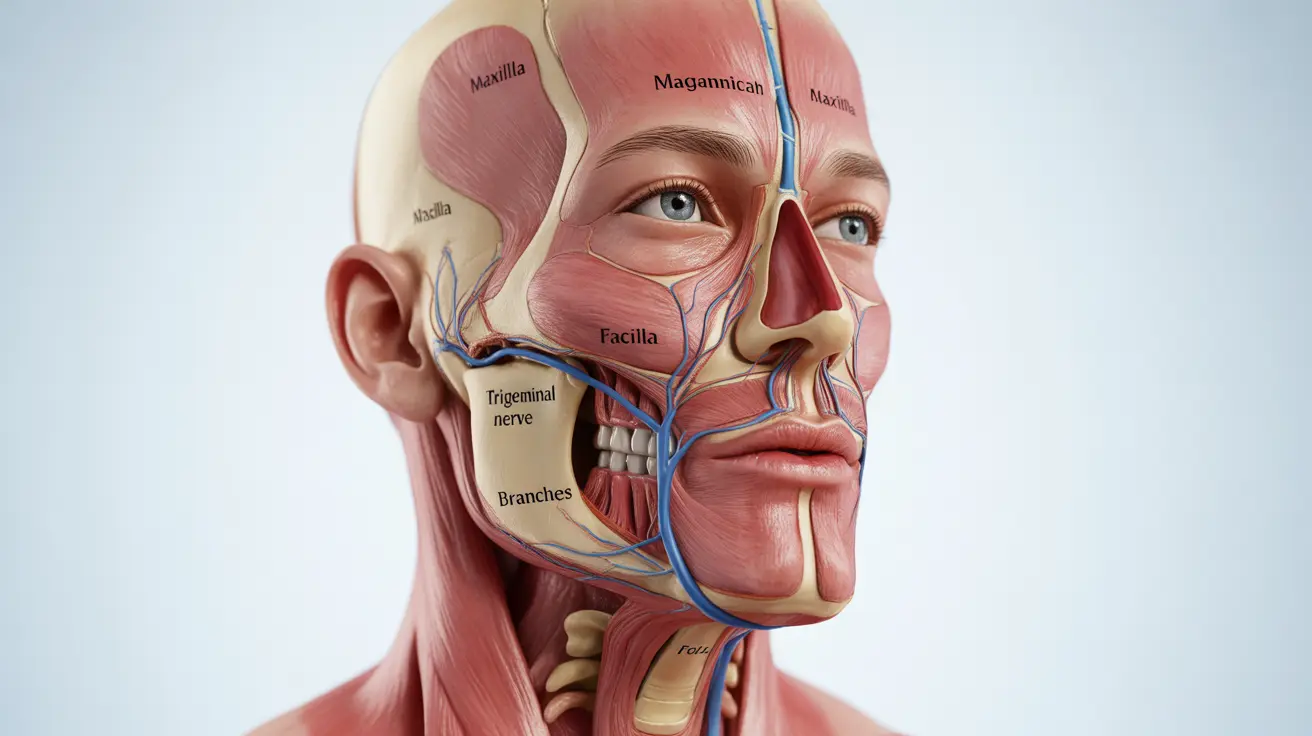Experiencing numbness in your face that comes and goes can be an unsettling sensation that may signal various underlying conditions. This intermittent facial numbness, also known as paresthesia, can affect different areas of the face and may be accompanied by tingling, burning, or a pins-and-needles sensation. Understanding the potential causes and knowing when to seek medical attention is crucial for proper diagnosis and treatment.
Common Causes of Intermittent Facial Numbness
Several conditions can trigger temporary numbness in the face:
Nerve Compression or Damage
The most common cause of intermittent facial numbness is pressure on or damage to the trigeminal nerve, which is responsible for facial sensation. This can occur due to:
- Sleeping in awkward positions
- Dental procedures
- Bell's palsy
- Trigeminal neuralgia
Migraine and Headache Disorders
Many people experience facial numbness as part of their migraine symptoms, particularly during the aura phase. This temporary numbness typically resolves once the migraine attack subsides.
Anxiety and Stress
Anxiety and panic attacks can trigger physical symptoms, including facial numbness. This occurs due to hyperventilation and changes in blood flow during periods of intense stress.
When to Seek Medical Attention
While some causes of facial numbness may be benign, certain symptoms warrant immediate medical evaluation:
- Sudden onset of facial numbness, especially on one side
- Numbness accompanied by weakness or difficulty speaking
- Visual changes or dizziness
- Severe headache
- Confusion or altered consciousness
Diagnostic Process
Healthcare providers typically follow a comprehensive approach to diagnose the cause of intermittent facial numbness:
- Detailed medical history
- Physical and neurological examination
- Imaging studies (MRI or CT scan) when necessary
- Blood tests to check for underlying conditions
- Nerve conduction studies in some cases
Treatment Options
Treatment for facial numbness varies depending on the underlying cause:
Conservative Management
For mild cases related to stress or position-induced compression:
- Stress reduction techniques
- Lifestyle modifications
- Physical therapy
- Proper sleep positioning
Medical Interventions
More serious conditions may require:
- Medication for specific conditions like migraines
- Anti-inflammatory drugs
- Antiviral medications (for Bell's palsy)
- Treatment of underlying medical conditions
Frequently Asked Questions
What are the most common causes of numbness in the face that comes and goes?
The most common causes include nerve compression, migraines, anxiety, Bell's palsy, and trigeminal neuralgia. Sometimes, simple factors like sleeping position or temporary pressure on facial nerves can cause intermittent numbness.
When should I see a doctor if my facial numbness happens intermittently?
Seek immediate medical attention if facial numbness is accompanied by sudden onset, one-sided weakness, speech difficulties, severe headache, confusion, or visual changes. These could indicate a serious condition requiring prompt evaluation.
Can migraines or anxiety cause temporary numbness in the face?
Yes, both migraines and anxiety can cause temporary facial numbness. Migraine-related numbness often occurs during the aura phase, while anxiety-induced numbness typically results from hyperventilation and stress responses.
How is facial numbness related to multiple sclerosis and how is it diagnosed?
Facial numbness can be an early symptom of multiple sclerosis (MS) due to nerve damage in the brain or spinal cord. Diagnosis typically involves MRI scans, neurological examinations, and sometimes spinal fluid analysis to confirm MS.
What treatments are available for facial numbness that keeps returning?
Treatment options include medications targeting the underlying cause, physical therapy, stress management techniques, and lifestyle modifications. The specific treatment plan depends on the diagnosed cause of the recurring numbness.




